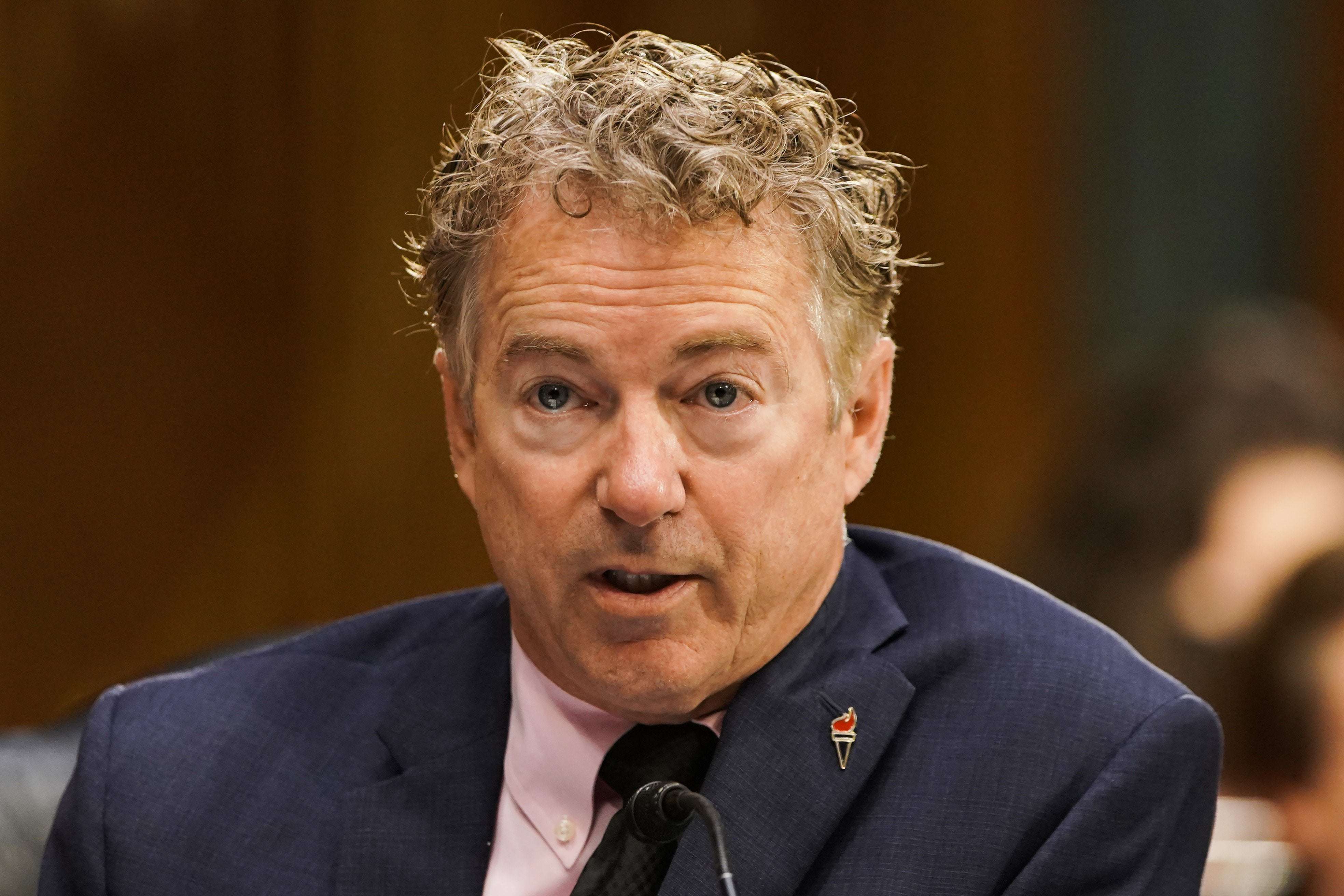Senator Rand Paul (R-KY) voted against an emergency bill to help tackle the COVID-19 pandemic just eight days after his wife purchased stock in a company that makes antiviral drugs to treat the disease.
Paul revealed on Wednesday that his wife, Kelley Paul, had purchased stock in Gilead Sciences on February 26, 2020. This disclosure came 16 months after the 45-day deadline for reporting such purchases laid down in the Stock Act and designed to curb insider trading.
Gilead Sciences produces remdesivir, a drug which was used to treat COVID-19 but is no longer recommended by the World Health Organization (WHO). Eight days after this stock purchase, on March 5, 2020, Paul was the lone senator to vote against a pandemic emergency response bill.
Read more Ron DeSantis Backs Down in Mask Mandate Dispute With Florida Schools Ron DeSantis Backs Down in Mask Mandate Dispute With Florida Schools
Paul had introduced an amendment to the bill which would have seen cuts to the State Department Cultural Exchange programs and reduced funding for the United States Agency for International Development (USAID) among other measures.
The Senate voted to table Paul's amendment by 80 to 16 and then passed the bill 96 to 1, with Paul being the only senator to vote against it.
The bill, which provided $8.3 billion in emergency funding, had already been passed by the House of Representatives and was subsequently signed into law by then President Donald Trump.
Paul spoke from the Senate floor on March 5, saying: "I think we should not let fear or urgency cause us to lose our minds and cause us to act in an irresponsible fashion."
"I'm not opposed to the emergency funding, but I think the emergency funding should be gotten from elsewhere in the budget," he said.
"We want to respond and make sure we are providing resources to our medical professionals and researchers," Paul went on. "That's important, and I support that."
Paul had previously said he would hold up passage of the bill if he was not given a chance to present the amendment and get a vote on it.
Charles Booker, a Democrat who is seeking to run against Paul in 2022, highlighted the timing of the stock purchase and the senator's vote on Twitter on Thursday.
"Just 8 days after Rand Paul bought stock in Gilead, he was the only Senator to vote against an emergency bill to curb the COVID-19 outbreak," Booker wrote. "He waited 16 months to disclose this information. We need a full investigation of Rand Paul's insider trading."
Just 8 days after Rand Paul bought stock in Gilead, he was the only Senator to vote against an emergency bill to curb the COVID-19 outbreak.
He waited 16 months to disclose this information.
We need a full investigation of Rand Paul’s insider trading. — Charles Booker (@Booker4KY) August 12, 2021
A spokesperson for Paul, Kelsey Cooper, told The Washington Post that Paul filled out the reporting form for his wife's stock purchase at the time but he learned recently that it hadn't been transmitted.
Paul consulted with the Senate Ethics Committee and filed a supplemental report on the matter on Wednesday along with an annual disclosure. However, that annual disclosure was due in May.
Cooper said Kelley Paul has made a loss on the investment. Gilead Sciences stock is now worth less than it was when Paul made the purchase but she still owns the stock and could potentially realize a profit in the future.
She purchased between $1,000 and $15,000 worth of stock using her own earnings. The purchase was made before the effect of the pandemic was fully understood.
Newsweek has asked Senator Rand Paul for comment.

DarkAngel900 on August 14th, 2021 at 01:59 UTC »
"That makes him a smart businessman!" ~Trump followers
dramaticcheesecurd on August 14th, 2021 at 01:58 UTC »
Rand did not like how the American Board of Ophthalmology required yearly testing. So he quit and declared himself certified under his own 'National Board of Ophthalmology'. He parked his wife and father-in-law on the executive and then wrote the 'tests' himself.
He is a fraud of his own profession. Everything about him is suspect.
Information from his wiki and the NBO wiki.
mayhapsintellectual on August 14th, 2021 at 01:26 UTC »
So what are we talking about here?
Is the implication that he’s interested in prolonging the pandemic because the more people infected with SARS-cov-2, the more the stock benefits?